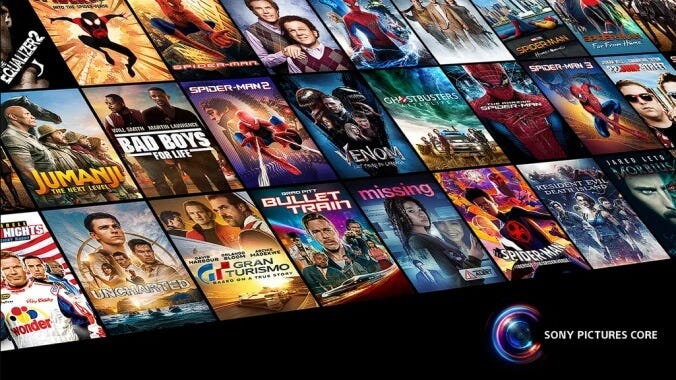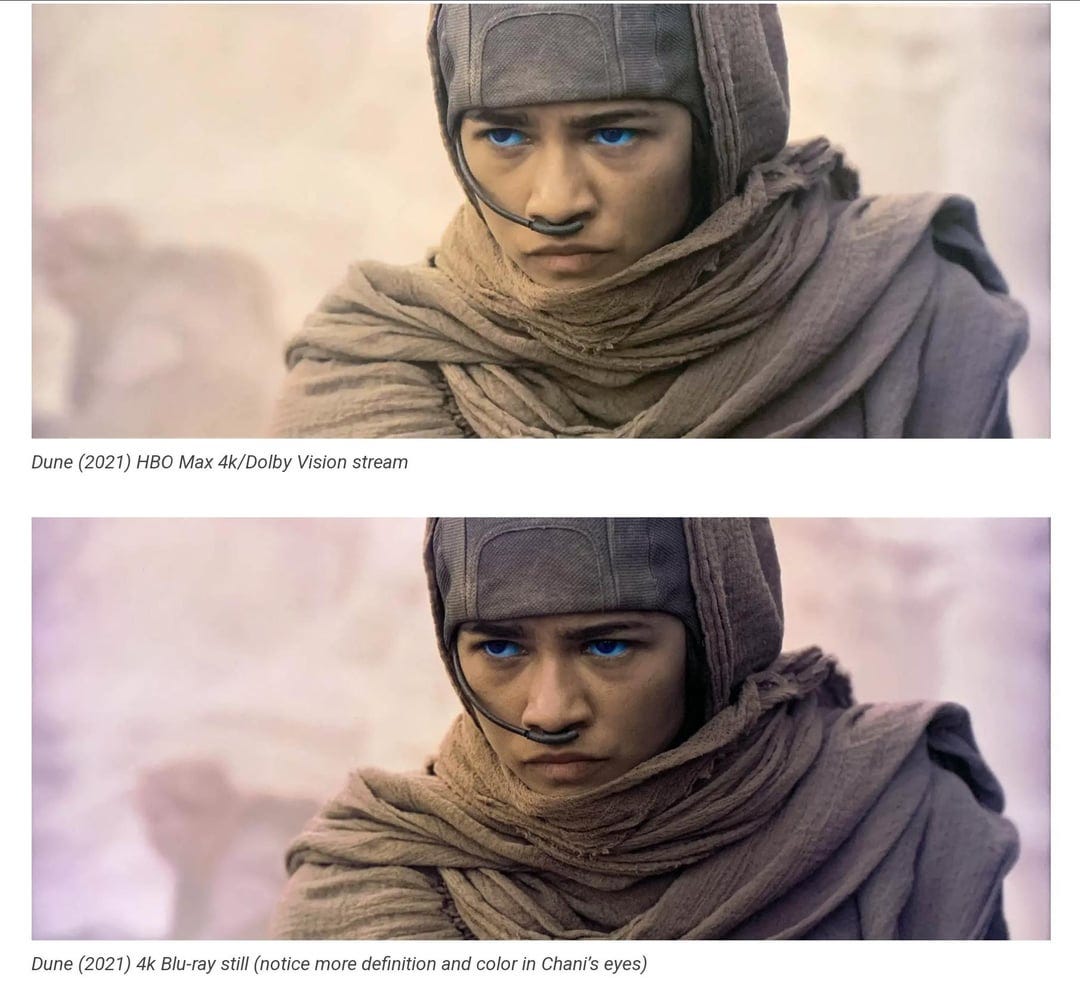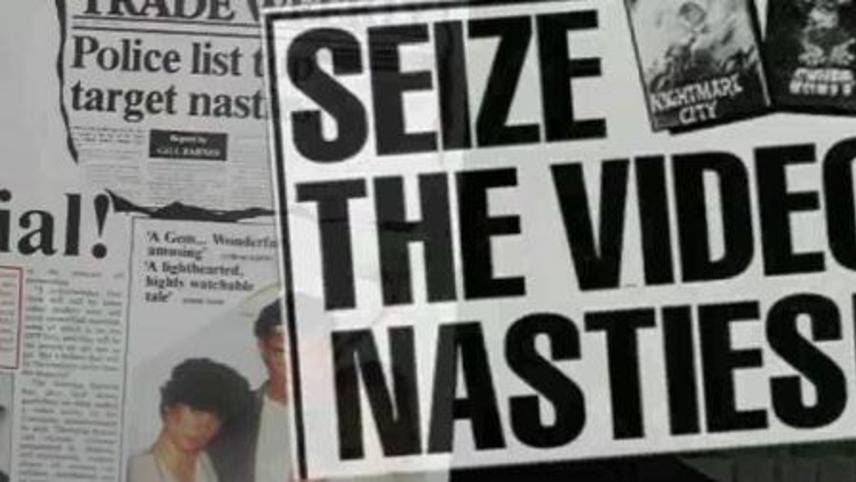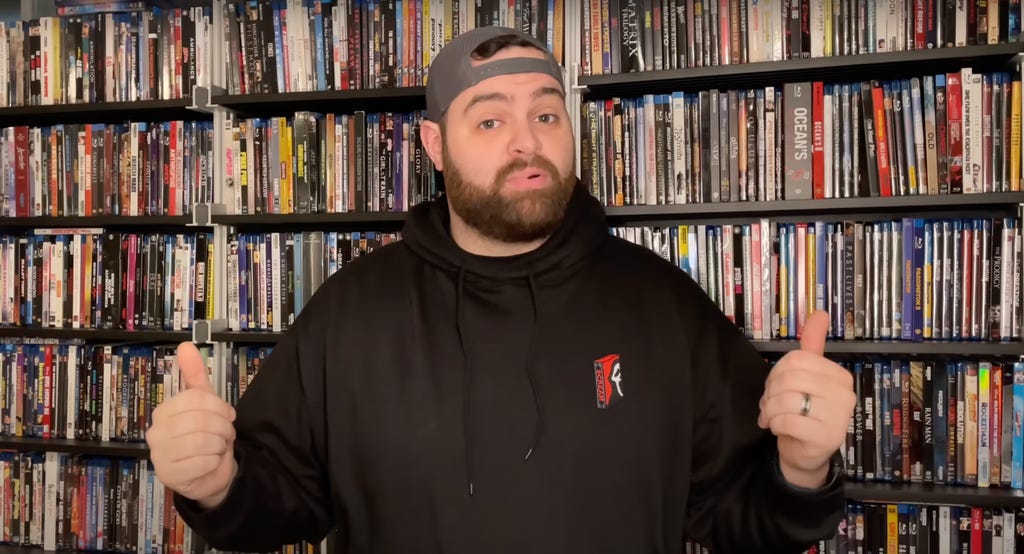Why Collecting Movies is More Than Just Nostalgia
Nostalgia is great, but building a movie collection is a lot more than just reliving the video store glory days.
The nostalgia economy is huge these days. Everything old is new again, especially pop culture from the 80s and 90s as millennials with a little bit of disposable income dive back in to the things they grew up on. Trading cards are huge again. Graphic tees with vintage cartoons and music and movies are selling in bunches. Retro gaming is hot again. And in the world of movies, physical media is definitely driven by nostalgia. Collectors are building their own personal video stores and labels are pushing on the nostalgia by releasing incredible collector’s editions. Some labels are even releasing new VHS tapes (like Disney’s Alien: Romulus tape, or Witter Entertainment’s line of horror VHS tapes), as tapes have made a major comeback from trash that thrift stores couldn’t give away to a new, hot collectible market.
But even if nostalgia is a major driver for physical media movie sales, collecting movies is a lot more than just nostalgia. I started collecting for quality reasons, wanting the best version of a movie that was available. Others collect to represent themselves and make a personal connection to film. Some people collect to help with film preservation, or to maintain a sense of ownership over a little piece of their lives as everything moves to a rental or subscription model. No matter why you do it, physical media is a key driver for so many people that extends far outside of pure nostalgia.
Ownership vs. Licensing: The Digital Trap
This may come as a surprise to some people, but when you buy a digital item, you are only buying a license to use that item as long as the service remains live and continues with their own licensing agreements with the content owner. A digital movie on Movies Anywhere is a nice and easy way to have a digital cloud for your movies, but if that goes away, so do your movies. If they lose a license to a film series or catalog, you could also lose access. Anything in the cloud is a rental.
When you buy a disc, you have a physical object in hand. If a label loses a license, which happens a lot, you still have it. It is yours forever. No one from Amazon is going to come and take it away from you, but they sure can on Prime Video. You technically are buying a license to watch this movie at home with the disc, but the physical object is the difference maker. Remember, if you can’t hold it, you don’t own it.
The Best Way to Watch: Picture & Sound Quality
As I mentioned, I first started buying physical media because I wanted to watch my movies in the best quality. I had just purchased a new big screen HDTV and surround sound system, and the DVDs I had at my house weren’t cutting it, and neither was streaming. I wanted more, and that is how I found the Blu-ray format, and never looked back.
“But Jeff, Netflix and Hulu stream in 4K!” You’re right. They do. But not all 4K video is created equal. 4K streaming does have the same resolution, but not the same quality. Bitrates are much lower on streaming than on disc, meaning that your image is far more compressed when you stream a movie. Streaming has to squish the video and audio to make it smaller so it can travel over the internet quickly. A 4k stream might be able to deliver bitrates of 15-20 Mbps, but a disc will deliver 70-80 Mbps or higher in some cases.
Some platforms, like Apple TV, handle this better than others, but none of them match up to what a 4K disc can give you on quality. Audio is the same - Dolby Atmos on Netflix is not the same as Dolby Atmos on disc. The streaming version is a compressed version. So if you invest thousands into a nice TV and sound system, you are doing a disservice to yourself by only streaming movies. It’s like buying a Ferrari and putting on old, used tires. It will still go fast and still look cool, but it isn’t getting nearly the performance it could be with the right racing tires.
Physical Media is Film Preservation
When you buy physical media, you are directly contributing to film preservation in more ways than you probably realize. For starters, many films are remastered in digital formats in 4K or HD with the intent of selling discs, digital rentals, and tickets to theatrical re-releases. By buying these discs, you are supporting those expensive efforts, especially with smaller labels that do a ton of restoration work like Vinegar Syndrome, The Criterion Collection, Arrow Video, and others. Without that revenue, these releases aren’t possible. I have been told by people in the industry that this is a serious consideration as to what is remastered next, and this is why sometimes you will see the first movie in a franchise, like Scream, come to 4K without the rest of the films. If the first sells well, they can do the rest. If it doesn’t, that might be it.
With physical media you also prevent films from disappearing. There are tons of movies out there which are still viewable only from old VHS masters. Whoever saved those tapes saved those movies. I have one example in my collection on VHS called The Ghosting. Almost every copy and film reel was lost in a fire, but a few hundred VHS tapes survived. Years later, someone uploaded the film to YouTube, but the VHS is still the highest quality master that exists today, to my knowledge.
Outside of that, you also prevent films from being censored. Imagine if we didn’t have physical copies of the original Star Wars trilogy. The special editions might have been all that exists. Guillermo Del Toro, a firm proponent of physical media, said it best: “Physical media is almost a Fahrenheit 451 safeguard.” By buying physical copies of a movie, you guarantee they continue to exist beyond censorship or crazy government bans or anything else the world might throw our way. It’s not a conspiracy theory - ask anyone who grew up during the 80s and 90s in Europe about Video Nasties. Without physical media backups and bootleg tapes, those movies would have been lost to entire countries. It happened once, it can happen again (book bans anyone?), and physical media is a safeguard.
Curation, Discovery, and Community
I would not be even 10% of the film fan I am today without physical media. When I found the Criterion Collection, Arrow Video, Scream Factory, Vinegar Syndrome, Kino Lorber, and so many other amazing indie labels, I also discovered thousands of new movies. Without physical media, it is so easy to get stuck in your own streaming bubble, driven by an algorithm that wants you to consume, consume, consume rather than discover anything new or take a risk. Getting into physical media, especially as a younger person like myself who was not around for the 60s, 70s, 80s, etc, is so important to discovering classics and new favorites, movies that streaming services don’t offer. Netflix doesn’t have a single movie from pre-1960 on their service, and recent estimates have them at only 12 movies from the 1960s in total. That is absurd, and is missing so much of film history.
Some streaming services are better than others. Kanopy and The Criterion Channel and Shudder have great recommendation engines and curated collections. But the big ones do not, and their major goal in 2025 is to have you watch their original content. They don’t care about film history and older movies. They push reality shows and series to keep you glued to the screen for hours. Binge watching is how they make their money, and while I love a good binge every now and then, if that was my whole experience with entertainment, that would suck. What a boring life! So thankfully physical media pulled me out of that bubble, out of the algorithm, and into a community of like minded film lovers who constantly help me find new things to watch that I can share with my audience in return. Without video stores and in-person meeting spots, this is a super important aspect of why physical media is so cool.
At the end of the day, why you collect is up to you. It is a personal journey, and everyone has their own reasons for starting a collection. Nostalgia could be your reason. But whether you know it or not, physical media goes a lot farther than nostalgia. It is about preservation, community, discovery, and truly is the best way to expand your knowledge of film without living right in an area like Los Angeles. For those of us like me, up here in New England, physical media is my film school. It is my way to discovery and it is my journey through film, and I am so thankful it exists. So keep it going, and make sure you buy your favorites! I’ve said it a million times and I will say it again - no one needs 3,000 movies like me, but everyone needs their top 10 on disc.






I've been into physical media since I started collecting vinyls in high school, but there was a point in my life where I really felt like streaming was incredible. I literally gave away or sold my movies and video games to people and pretty much cleared out my collection, but I ended up buying a lot of it back over the years.
There's just something about being able to pull a box off of a shelf and show it to someone or letting a friend borrow a movie or game that is so enjoyable and exciting. I've come to appreciate collecting and curating as a way of expressing myself and sharing experiences with others.
To my knowledge, the only streaming service that matches a 4K UHD disc is the Kaleidescape: The Ultimate Movie Platform (but I'm not going to be shelling out up to $24,000 for a server). I agree with you and also support the purchase of physical media. I can watch any film I own at any time. And there's the added bonus is that as TVs get better (and bigger), I've seen the quality of the films only increase over time.
Sure, investing in 4k can be expensive, but you can build your collection over time. And if you haven't seen a film like Top Gun: Maverick in 4k UHD in Dolby Vision with Dolby Atmos--wow, that film just blows you away.
I've been collecting movies since the mid-90s and I have an extremely small collection. I own the films that I love and want to see over and over. Now that 4K UHDs are out with HDR and Dolby Vision, we're at peak collecting. Each year, more and more films are coming out on 4K. And if you're not into 4K, you can easily pick up used Blu-rays for under $7. If you're going to rent a film for $6, why not spend a buck more and own it?
Great post!